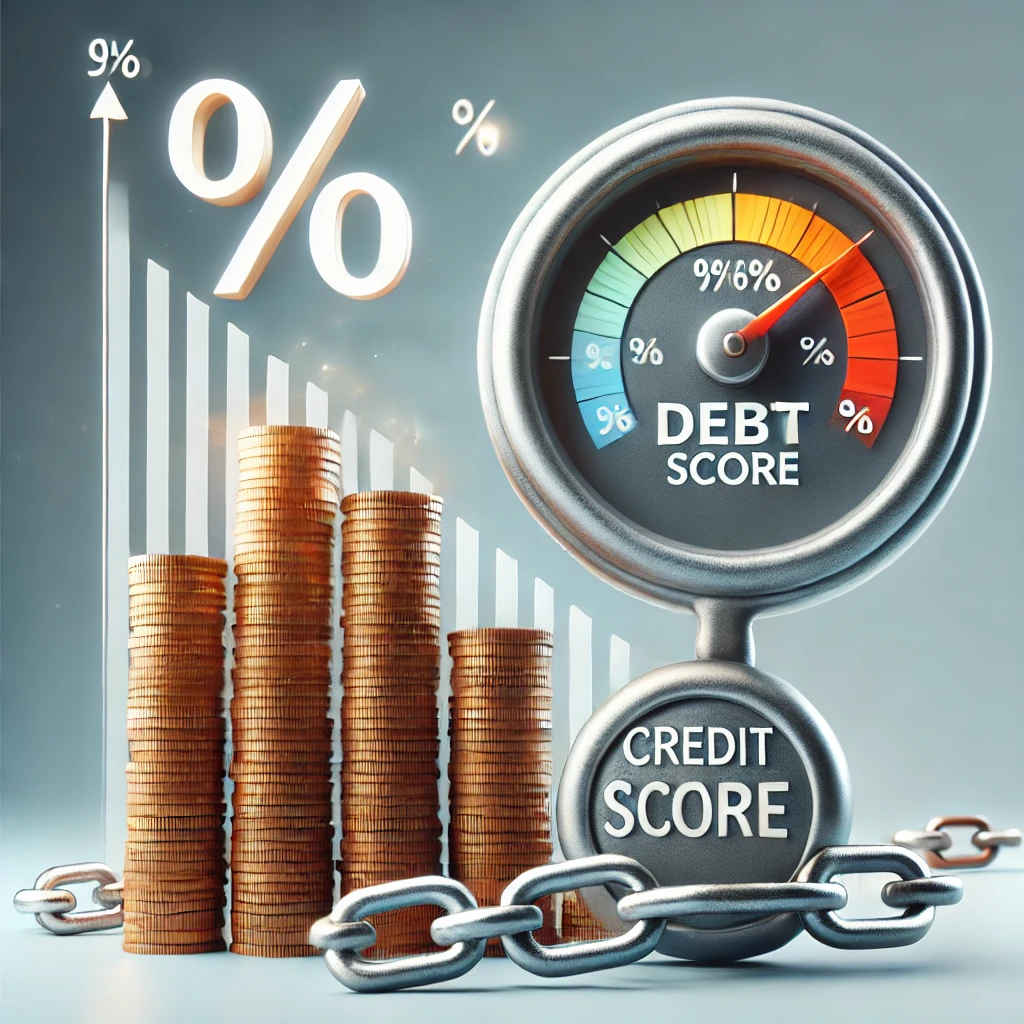
In personal finance, building a solid foundation is essential for long-term financial success. Each foundation represents a step that brings individuals closer to financial freedom and the ability to plan for future needs. Among these, the second foundation—focused on paying off debt—is one of the most transformative. This guide explains why debt management is a cornerstone in personal finance and provides actionable steps to help anyone reach financial independence.
What Is the Second Foundation in Personal Finance?

The second foundation in personal finance emphasizes the importance of paying down and ultimately eliminating debt. High-interest debts, such as credit cards or personal loans, can quickly spiral into long-term burdens, impacting one’s ability to save, invest, or plan for life’s unexpected events. For most individuals, paying off debt is a foundational step because it allows them to regain control of their finances and eliminate the drain on their monthly income caused by interest payments.
Programs like Dave Ramsey’s “Foundations in Personal Finance” highlight debt repayment as a key step toward financial well-being. By prioritizing debt elimination, individuals free up financial resources for other important aspects of their financial life, such as emergency funds, investments, and wealth-building strategies.
Why Debt Management is Crucial in Personal Finance
Debt can have a far-reaching impact on your financial health, affecting not only your monthly budget but also your long-term financial plans and goals. Here are three reasons why managing debt is essential to a strong financial plan:
- Improved Credit Score: Your credit score is directly impacted by your debt levels, particularly revolving debt from credit cards. By reducing this debt, you can positively influence your credit score, which is a major factor in determining your ability to secure loans and the interest rates you qualify for.
- Lower Loan Interest Rates: High debt-to-income ratios (DTI) can make it more challenging to qualify for favorable loan rates. When you lower your outstanding debt, you improve your DTI, which can lead to more favorable loan conditions. This translates to savings on interest payments over time, leaving you with more disposable income.
- Financial Freedom and Flexibility: Living with manageable or no debt provides you with financial freedom, which allows for more flexibility in decision-making. Without the burden of debt payments, you can allocate funds toward savings, investments, or even leisure, without the constant pressure of outstanding balances.

How Debt Affects Your Credit Score and Loan Rates
A key component of personal finance is understanding how your credit score and debt levels are interconnected. Credit scores influence many financial opportunities, from renting apartments to securing loans, and they are often affected by your credit utilization ratio and payment history.
Credit Utilization Ratio: How Debt Levels Impact Your Score
Your credit utilization ratio is the percentage of your available credit that you’re currently using. It’s calculated by dividing your total credit card balances by your total credit limits. For example, if you have a $10,000 credit limit and a balance of $3,000, your utilization ratio is 30%.
Financial experts recommend keeping your credit utilization ratio below 30% to avoid negative impacts on your credit score. A lower utilization ratio indicates responsible credit usage, which lenders view positively. High utilization, however, can signal that you’re overextended, and it may cause your score to drop.
Loan Interest Rates and Debt-to-Income Ratios
When lenders assess loan applications, they often look at the debt-to-income (DTI) ratio to determine if an applicant can handle additional debt responsibly. The DTI ratio compares your monthly debt payments to your gross monthly income. Lowering your debt decreases this ratio, making you a more attractive candidate for loans with better interest rates.
Interest rates on loans—especially unsecured loans like personal loans or credit cards—are significantly affected by credit scores. Therefore, by reducing your debt and improving your credit score, you not only enhance your chances of loan approval but also improve the terms, leading to substantial savings over time.

Steps to Implement the Second Foundation: How to Manage Debt Effectively
Understanding the need for debt reduction is essential, but implementing it can be challenging. Here’s a practical guide to help you follow through on the second foundation in personal finance:
1. Create a Budget to Track Expenses and Prioritize Debt Payments
Budgeting is a foundational tool in managing personal finance. By tracking income and expenses, you can identify areas where you may be overspending or have opportunities to allocate additional funds toward debt repayment.
- Plan for Monthly Debt Payments: Ensure that your budget includes consistent allocations for debt payments. This ensures regular contributions toward reducing your balances, preventing late fees, and keeping you on track.
- Cut Unnecessary Spending: A budget also allows you to identify unnecessary expenses. For instance, dining out frequently, subscriptions you seldom use, or even minor impulse buys add up over time. Redirecting these savings toward debt repayment can accelerate your journey to a debt-free life.
2. Prioritize High-Interest Debt with Strategic Payment Methods
Different debts have different interest rates, and some strategies focus on paying down high-interest debt first to save on overall interest costs.
- The Debt Avalanche Method: This approach targets the debt with the highest interest rate first, which typically includes credit cards. By prioritizing high-interest debt, you reduce the total interest paid, which can shorten the time it takes to become debt-free.
- The Debt Snowball Method: This method involves paying off debts from smallest to largest, regardless of the interest rate. Although it may not minimize interest as effectively as the avalanche method, it can provide a psychological boost, as you see smaller debts disappearing quickly.
Both methods are effective, and choosing the one that aligns with your personality and financial goals is essential. The avalanche method minimizes interest payments, while the snowball method offers quicker rewards, helping some individuals stay motivated.
3. Make Consistent Payments and Avoid New Debt
Consistency is key when it comes to debt repayment. Avoid accumulating more debt while focusing on reducing your existing balances.
- Stick to a Payment Schedule: Creating a payment schedule keeps you on track. Set reminders or automate payments to ensure that you meet due dates, avoiding late fees and potential credit score impacts.
- Avoid Additional Debt: Once you begin paying down debt, it’s crucial to avoid taking on more. This may mean resisting the urge to open new credit card accounts or refraining from making large purchases that you cannot pay off in full by the due date.

Incorporating the Second Foundation Into Your Overall Financial Plan
Achieving financial stability isn’t about taking one or two isolated steps—it’s a comprehensive plan. Here’s how debt elimination (the second foundation) fits into your broader financial journey:
- Step 1: Establish an Emergency Savings Fund
Before focusing solely on debt repayment, financial experts advise setting aside a small emergency fund. This cushion prevents the need to rely on credit for unexpected expenses, allowing you to continue your debt repayment efforts without interruption. - Step 2: Eliminate Debt (The Second Foundation)
Once you’ve established your emergency fund, shift your focus to eliminating debt. The second foundation empowers you to regain financial control, reduce stress, and set the stage for wealth-building strategies. - Step 3: Build Wealth Through Investments and Savings
With debt under control, you can begin investing and saving more effectively. The money you previously used for debt payments can now contribute to retirement accounts, stocks, real estate, or other financial goals, accelerating your path to financial independence.
Psychological Benefits of Achieving Financial Freedom Through Debt Repayment
Debt repayment offers not only tangible financial benefits but also significant psychological rewards. When you’re free from the burden of debt, you experience greater mental and emotional well-being. This shift can positively affect all aspects of life, from relationships to career choices.
- Reduced Financial Stress: Debt can be a constant source of worry, as each payment reminder brings a sense of financial strain. Achieving debt freedom alleviates this stress, contributing to a more positive outlook and better mental health.
- Increased Confidence: Taking charge of your finances through debt repayment boosts confidence. Each debt you pay off is an accomplishment, reinforcing positive financial habits and strengthening your financial self-control.
- Freedom to Make Life Choices: Financial freedom allows you to make decisions without the constraint of debt obligations. Whether it’s changing careers, starting a business, or planning for retirement, being debt-free expands your options and enables you to pursue life’s opportunities.
Practical Tips for Staying Debt-Free Once You’ve Achieved It
Reaching debt freedom is a significant milestone, but maintaining it requires diligence and ongoing planning. Here are some tips to ensure you stay debt-free:
- Use Credit Cards Responsibly: Avoid using credit cards for unnecessary expenses, and always aim to pay off your balance in full each month. If you must use credit, ensure it’s for manageable amounts within your budget.
- Reassess Your Financial Plan Regularly: Life circumstances change, so revisiting your financial goals and budget regularly helps you stay aligned with your long-term objectives.
- Continue Building Your Emergency Fund: One of the leading causes of debt is unexpected expenses. By maintaining a well-funded emergency savings account, you reduce the likelihood of needing credit to handle unplanned costs.

Final Thoughts: Building Financial Foundations for a Secure Future
Mastering the second foundation of personal finance—paying off debt—is a powerful step toward financial stability. By tackling debt head-on and understanding its impact on your credit score, loan rates, and overall financial health, you lay a strong foundation for future financial success. Implementing these strategies helps ensure that your financial journey is secure, empowering you to focus on wealth-building, investments, and achieving your dreams.
With consistent effort, a strategic approach, and a dedication to staying debt-free, you’re well on your way to enjoying a future of financial freedom and independence.
Visit our other website: https://synergypublish.com
